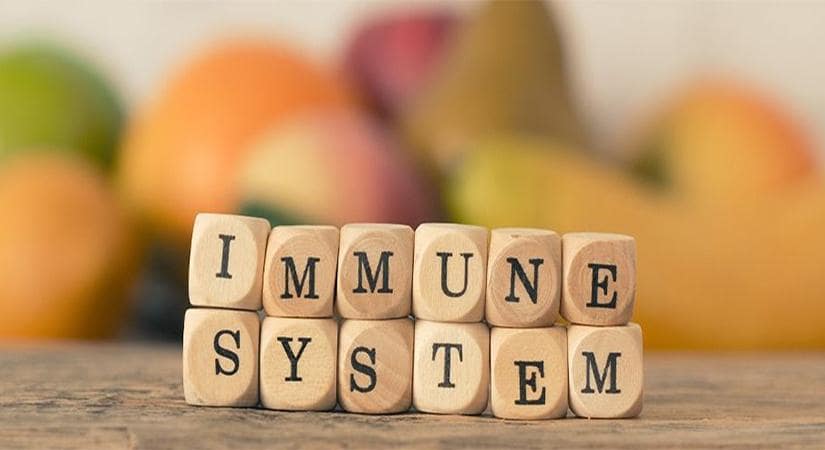Make Immunity your Best Friend

Immunity in the New Normal
The pandemic’s biggest mystery is our immune system. But, do we really understand how it functions? In simple terms, it’s your body’s armour against illnesses. The immune system also aids you to get back on your feet after an injury (quite literally). All the elements needed to keep the system up and running are carried through a river of blood and lymph. These elements reduce toxin build-up and kick out the pathogens from the body. In simple terms, our immune system works in three phases: detecting a threat, stopping the spread, and attacking in return.
Lifestyle Changes that Are Your Saviors

Where does nutrition come into the picture in all of this? Everything that your body requires can be easily found in nature. Fruits and vegetables make up half of your Healthy Eating Plate, as per a study by Harvard University. While there are plenty of supplements available in the market, there’s no guarantee what will work best for you. These multivitamins and supplements come with their fair share of side effects too. Some simple lifestyle changes that you can incorporate are exercising regularly, getting adequate sleep, and minimizing your alcohol intake. A healthy body means a healthy mind.
Importance of Nutrition for a Healthy Immune System

A diet rich in nutrients ensures the proper functioning of your body, including the immune system. Certain dietary habits may help you fight the microbial attacks and prepare you better for other illnesses. A deficiency of vitamins can alter the immune system too. With fruits, you’re making sure you receive nature’s finest without any compromise. From achoo to ahem ahem, they can help you fight plenty of illnesses and infections.
Here are some of the chosen fruits that ensure you get those immunity-boosting nutrients:
Citrus Oranges

Oranges are said to contain the maximum amount of vitamin C among fruits. Many studies also state that oranges can provide you with 100% of your daily requirement of vitamin C. They are packed with antioxidants that prevent cell damage by fighting free radicals, lower the level of the stress hormone — cortisol, and manage your blood sugar levels too. Oranges are very hydrating as they’re made up of 87% water. Other nutrients found in oranges include potassium, folate, and fibre. We’re not saying that you should get yourself some oranges right now, but get some oranges for yourself right now.
Berry Nutritious Blueberries

This superfood is super dense in nutrition. Blueberries are low in calories but high in vitamins C and K. They’re also called the king of antioxidant foods. Blueberries contain flavonoids, a family of polyphenol antioxidants that are known to protect your body from free radicals and contribute to healthy ageing. Several studies suggest that they reduce DNA damage and the amount of LDL or bad cholesterol in your body. Their versatility makes them easily consumable too. Blend them for a smoothie, bake them for a cookie, or just pop them frozen — they’ll always taste delicious.
Apples: Nature’s Dose of Wellness

Our ancestors didn’t lie when they said, “An apple a day keeps the doctor away.” They’re rich in nutrients like vitamin C, polyphenols, fibre, and potassium. Apart from being nutritious, they are yummy and loved by all. Apples also promote gut health (that’s exactly where 70% of the cells that make up the immune system reside). So, whenever you’re munching on that crunchy fruit, remember you’re doing something good for your gut. Apples also help in preserving the neurotransmitters that are involved in memory and focus.
Immunity has been making headlines and there's no one way to boost it. The important factor is to constantly implement tweaks that enhance your nutrition intake. We often compromise on getting the best due to higher prices, but with changing demands, brands are starting to make sure that they provide delicious and superior-quality produce with affordability.
The Bottom Line

Fruits can help you fight your way through minor inconveniences like cold, cough, and infections and aid you in resisting bigger challenges like cardiovascular health issues, cholesterol-related conditions, and problems associated with blood sugar. So, what’s your pick going to be?


